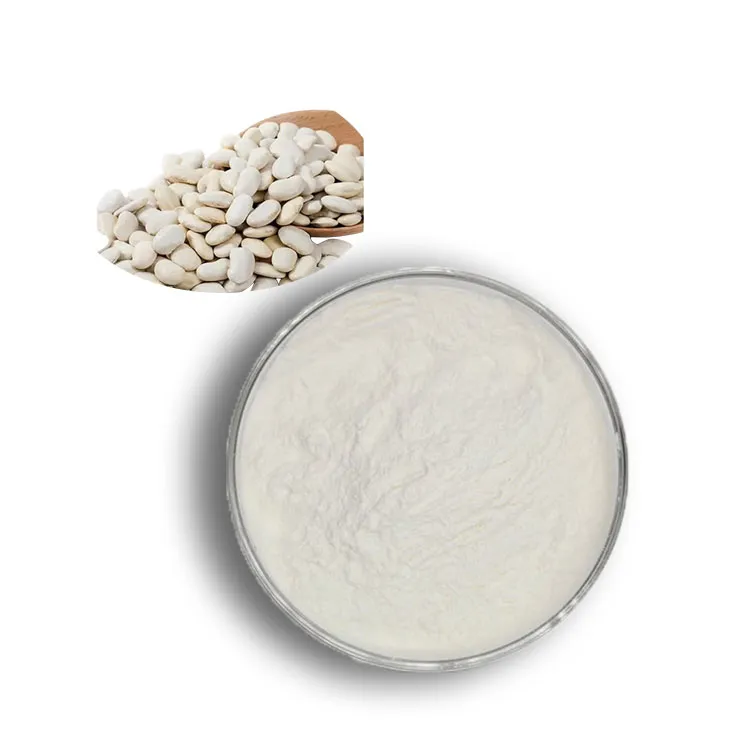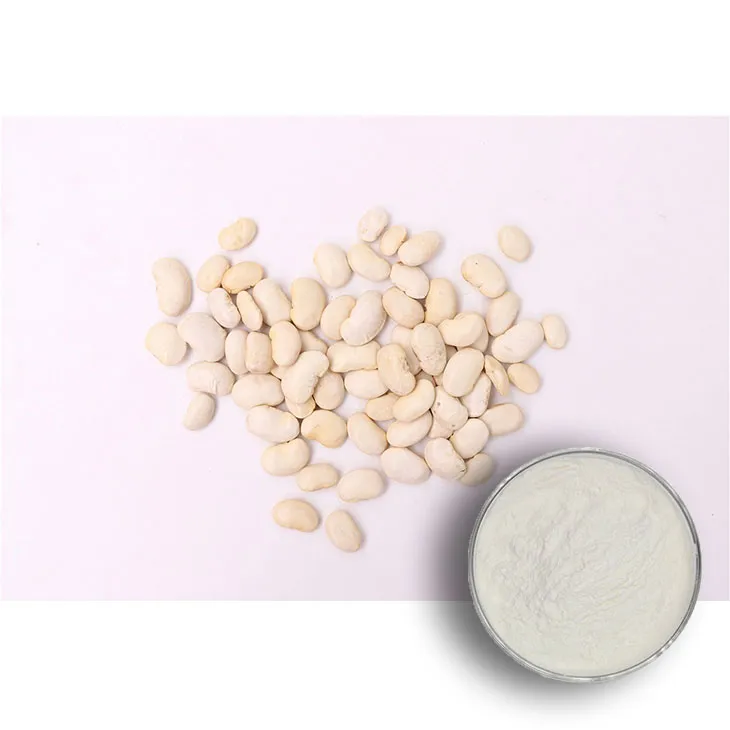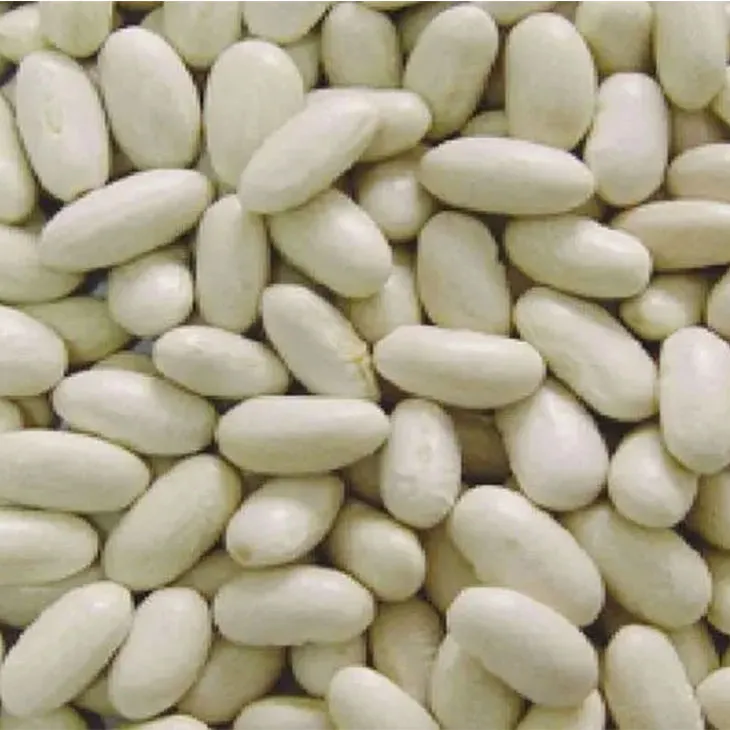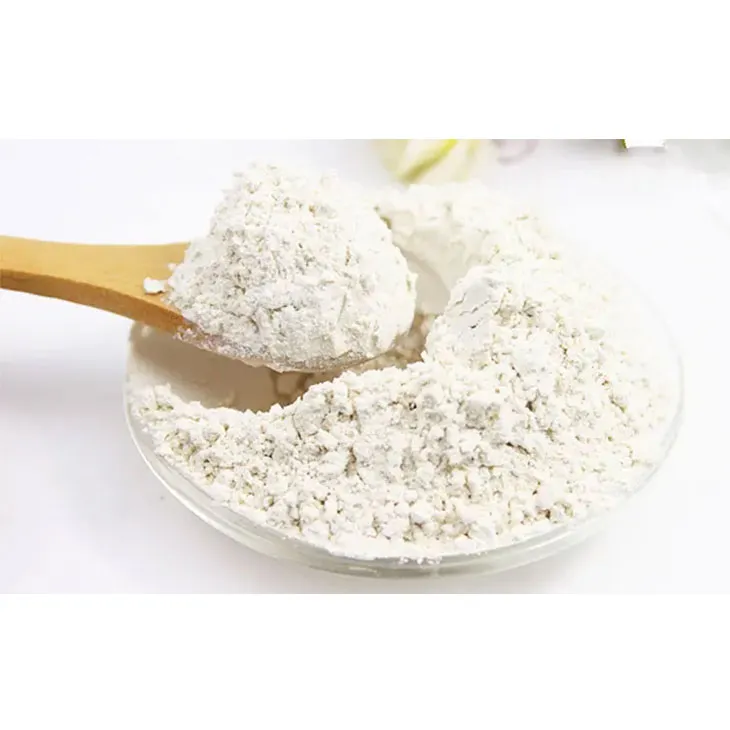- 0086-571-85302990
- sales@greenskybio.com
Components of kidney bean extract in fertilizers and feeds.
2024-11-30

1. Introduction
Kidney Bean Extract has emerged as a potentially valuable ingredient in both fertilizers and feeds. This extract is derived from kidney beans, which are a common and widely consumed legume. In recent years, research has increasingly focused on exploring the various components within the Kidney Bean Extract and their potential applications in promoting plant growth in fertilizers and providing essential nutrients in animal feeds.

2. Components of Kidney Bean Extract
2.1 Nitrogen - containing Compounds
One of the significant components of kidney bean extract for fertilizers is the presence of nitrogen - containing compounds. Nitrogen is an essential element for plant growth, as it is a crucial component of proteins, nucleic acids, and chlorophyll. In the soil, these nitrogen - containing compounds can be broken down by soil microorganisms into forms that are readily available for plant uptake. This helps to improve soil fertility and ultimately enhances plant growth. For example, certain amino acids present in the kidney bean extract can serve as a source of nitrogen for plants.
2.2 Proteins and Amino Acids
Kidney bean extract also contains a variety of proteins and amino acids, which are not only important for plants but also for animals in the context of feeds. For plants, some of these proteins can be broken down into peptides and amino acids that can be used for various physiological processes. In animal feeds, the proteins and amino acids in kidney bean extract are a source of high - quality nutrients. Essential amino acids such as lysine, methionine, and tryptophan are required by animals for proper growth, development, and maintenance of body functions.
2.3 Vitamins and Minerals
Another aspect of the kidney bean extract's composition is the presence of vitamins and minerals. Vitamins such as vitamin B complex are present in the extract. These vitamins play important roles in plant and animal metabolism. For example, in plants, vitamins are involved in processes such as photosynthesis and respiration. In animals, they are essential for various physiological functions. Minerals like potassium, phosphorus, and magnesium are also found in kidney bean extract. In plants, potassium is important for osmoregulation and stomatal function, while phosphorus is a key component of nucleic acids and ATP. In animal feeds, these minerals are necessary for bone formation, muscle function, and other physiological processes.

3. Functions of Kidney Bean Extract in Fertilizers
3.1 Soil Fertility Improvement
As mentioned earlier, the nitrogen - containing compounds in kidney bean extract contribute to soil fertility. When added to the soil, they increase the nitrogen content, which is often a limiting factor in plant growth. This, in turn, promotes the growth of beneficial soil microorganisms. These microorganisms play a vital role in nutrient cycling, decomposition of organic matter, and improving soil structure. A more fertile soil with a healthy microbial community can better support plant growth, leading to increased crop yields.
3.2 Plant Growth Promotion
The various components of kidney bean extract work together to promote plant growth. The proteins and amino acids can be directly absorbed by plants and used for building new tissues. The vitamins and minerals also support different physiological processes in plants. For example, the presence of potassium in the extract can enhance the plant's ability to tolerate drought and disease. Overall, plants treated with fertilizers containing kidney bean extract tend to have stronger root systems, more vigorous shoot growth, and better overall development.

4. Functions of Kidney Bean Extract in Feeds
4.1 Nutrient Source
In animal feeds, kidney bean extract serves as a valuable nutrient source. The proteins and amino acids are especially important for livestock and poultry. They are used for muscle development, milk production in dairy animals, and egg production in poultry. The vitamins and minerals in the extract also supplement the dietary requirements of animals. For example, vitamin B complex helps in maintaining the nervous system and overall health of animals.
4.2 Feed Palatability
Kidney bean extract can also improve the palatability of animal feeds. Animals are more likely to consume feeds that have a good taste and smell. The extract may contain certain compounds that enhance the flavor of the feed, making it more appealing to animals. This is important as it can lead to increased feed intake, which is crucial for optimal growth and production in animals.

5. Safety Considerations
5.1 For Plants
When using kidney bean extract in fertilizers, it is important to ensure that the concentration is appropriate. Excessive amounts of certain components may have negative impacts on plants. For example, too much nitrogen can lead to excessive vegetative growth at the expense of fruit or seed production. Also, the quality of the kidney bean extract should be monitored to avoid contaminants that could harm plants.
5.2 For Animals
In animal feeds, safety is also a key concern. Some kidney bean varieties may contain anti - nutritional factors such as lectins and trypsin inhibitors. These substances can interfere with the digestion and absorption of nutrients in animals. However, proper processing of the kidney bean extract can reduce or eliminate these anti - nutritional factors. It is essential to ensure that the extract used in animal feeds is free from harmful levels of such substances.
6. Future Prospects
6.1 Research and Development
There is still much research to be done on kidney bean extract in both fertilizers and feeds. Future research could focus on optimizing the extraction methods to obtain a more pure and effective extract. Studies could also be carried out to further understand the interactions between the different components of the extract and their effects on plants and animals. For example, how the combination of specific proteins and vitamins affects plant growth or animal health.
6.2 Industrial Applications
In the future, the industrial application of kidney bean extract in fertilizers and feeds is likely to expand. With increasing awareness of sustainable agriculture and animal production, there is a growing demand for natural and environmentally friendly ingredients. Kidney bean extract, being a plant - based and potentially renewable source, could meet this demand. It could be incorporated into a wider range of fertilizer and feed products, and its production could be scaled up to meet the market needs.
7. Conclusion
Kidney bean extract contains a variety of components that make it a valuable ingredient in fertilizers and feeds. Its nitrogen - containing compounds, proteins, amino acids, vitamins, and minerals contribute to soil fertility, plant growth, and animal nutrition. However, safety considerations must be taken into account when using it in both applications. With further research and development, the future prospects of kidney bean extract in the fields of fertilizers and feeds are promising, offering potential benefits for sustainable agriculture and animal production.
FAQ:
What are the main components of kidney bean extract in fertilizers?
The main components in kidney bean extract for fertilizers often include nitrogen - containing compounds. These compounds play a crucial role in enhancing soil fertility as nitrogen is an essential nutrient for plant growth. It helps in various physiological processes of plants such as photosynthesis and protein synthesis.
What nutrients does kidney bean extract provide for animals in feeds?
Kidney bean extract offers a source of high - quality nutrients for animals. It may contain proteins, vitamins, and minerals. Proteins are essential for muscle building and maintenance in animals, while vitamins and minerals are involved in numerous metabolic processes, ensuring the overall health and productivity of the animals.
How does kidney bean extract improve soil fertility as a component of fertilizers?
As mentioned before, the nitrogen - containing compounds in kidney bean extract are key. Nitrogen is a fundamental element for plants. When added to the soil through fertilizers containing kidney bean extract, it enriches the soil, making it more fertile. This allows plants to grow more vigorously, with better root development, increased foliage, and ultimately higher yields.
Is kidney bean extract safe for use in feeds?
Generally, when used properly, kidney bean extract can be safe for use in feeds. However, it is important to ensure that any potential anti - nutritional factors are removed or minimized during the extraction process. Also, the dosage needs to be carefully controlled to avoid any adverse effects on the animals. Proper quality control and safety assessment procedures should be in place.
What are the future prospects of using kidney bean extract in fertilizers and feeds?
The future prospects are quite promising. In fertilizers, as the demand for more sustainable and environmentally friendly products grows, kidney bean extract could be a natural and effective alternative. In feeds, with the increasing focus on high - quality and natural sources of nutrients, it may find wider application. Research may also lead to better extraction methods and a more comprehensive understanding of its benefits, further expanding its use in both areas.
Related literature
- The Role of Kidney Bean Extract in Organic Fertilization"
- "Kidney Bean Extract: A Novel Ingredient in Animal Nutrition"
- "Beneficial Components of Kidney Bean Extract for Soil and Livestock"
- ▶ Hesperidin
- ▶ citrus bioflavonoids
- ▶ plant extract
- ▶ lycopene
- ▶ Diosmin
- ▶ Grape seed extract
- ▶ Sea buckthorn Juice Powder
- ▶ Beetroot powder
- ▶ Hops Extract
- ▶ Artichoke Extract
- ▶ Reishi mushroom extract
- ▶ Astaxanthin
- ▶ Green Tea Extract
- ▶ Curcumin Extract
- ▶ Horse Chestnut Extract
- ▶ Other Problems
- ▶ Boswellia Serrata Extract
- ▶ Resveratrol Extract
- ▶ Marigold Extract
- ▶ Grape Leaf Extract
- ▶ blog3
- ▶ blog4
-
The best lemon juice powder in nature.
2024-11-30
-
Organic Vitamin K2 Powder Suppliers
2024-11-30
-
Bulk purchase of L - tyrosine.
2024-11-30
-
Vitamin K2 Manufacturers
2024-11-30
-
100% Pure Natural Rutin.
2024-11-30
-
Chinese Citrus Bioflavonoid Suppliers.
2024-11-30
-
Saw Palmetto Extract
2024-11-30
-
Oat Straw Extract Powder
2024-11-30
-
Hesperidin
2024-11-30
-
Thunder God Vine Extract
2024-11-30
-
Bitter Melon Extract
2024-11-30
-
Calendula Extract
2024-11-30
-
Hawthorn Extract
2024-11-30
-
Sophora Flavescens Root Extract
2024-11-30
-
Cranberry Extract
2024-11-30
-
Maca Extract
2024-11-30





















